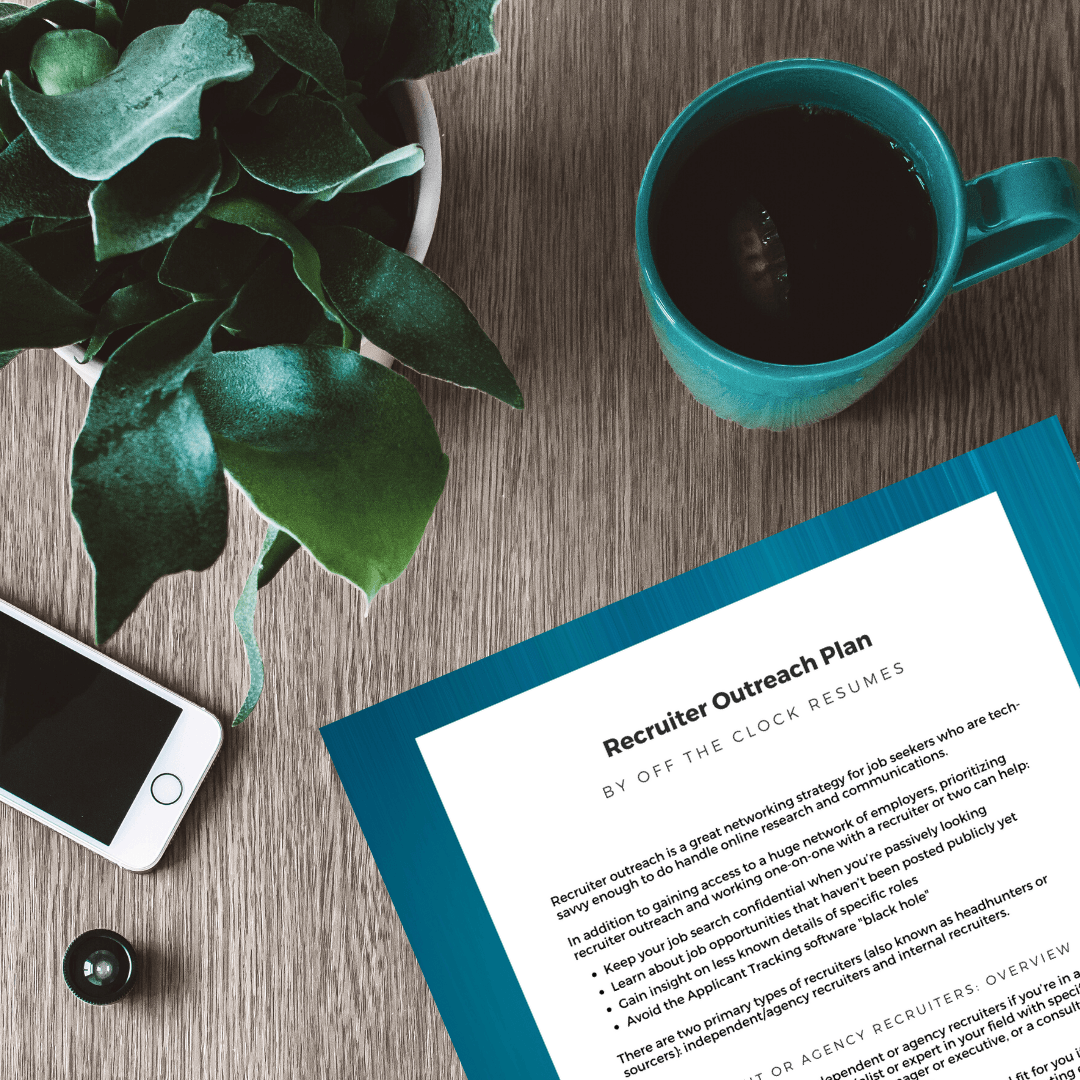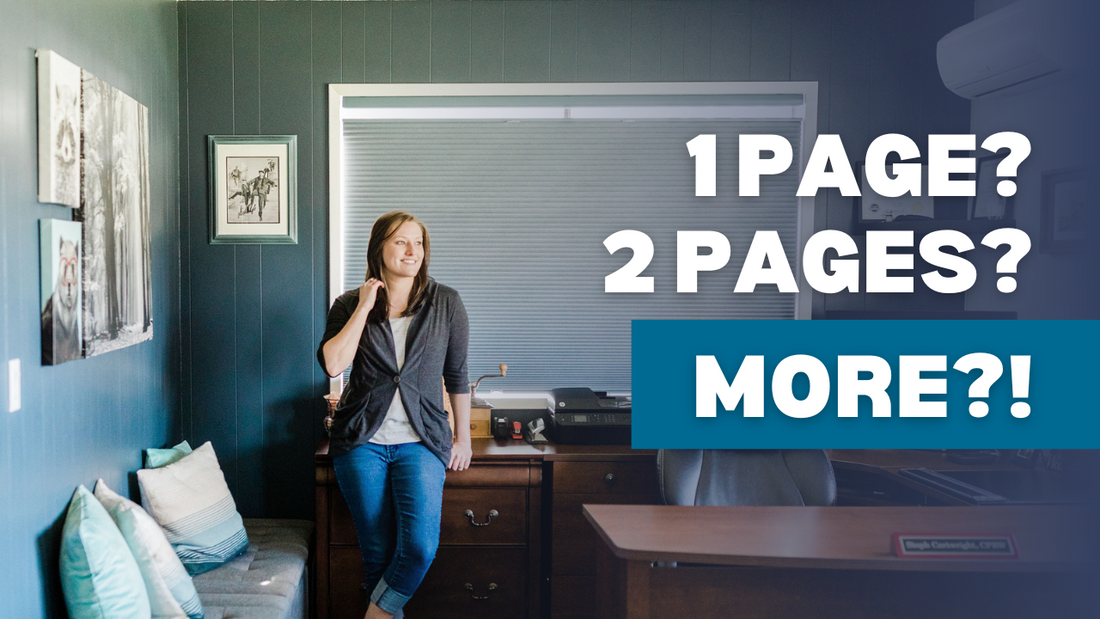
The Perfect Resume Length: One Page, Two Pages, or More?
Ever stare at your resume and wonder, "Am I saying too much... or not enough?" You’re not alone. One page? Two pages? Three? Everyone from your cousin with strong opinions to recruiters on LinkedIn seems to have a different answer.
Let’s cut through the noise and settle this once and for all. Because the truth is, there is a right length... for you.
This blog contains affiliate links, meaning I may receive a small commission (at no cost to you) if you subscribe or buy something through the links I share. I only share links to products or services that I use myself or absolutely love!
Myth-Busting Time: What Resume "Rules" Are Just... Wrong?
Let’s kick things off by debunking a few common myths that have overstayed their welcome in the job search world:
Myth #1: Your resume must be one page.
Myth #2: More pages = more impressive.
Myth #3: Recruiters won’t read past the first page.
Spoiler alert: None of these are universally true. So if you've been trying to squish a decade of experience into one cramped page or stretching out a short career just to hit two, take a deep breath. We're about to make this way easier.
One Page: When Short and Sweet Is Exactly Right
If you’re early in your career—zero to five years of experience—a one-page resume might be your golden ticket. One page also makes perfect sense if you’re applying to internships, entry-level, or junior roles or if your job history is straightforward and without career pivots or massive projects.
You want to highlight potential more than past accomplishments. In this case, clarity beats cramming every time.
You're not trying to manifest an entire career. You're just trying to show your potential.
And let’s be real—if you're using 9-point font and quarter-inch margins to make it all fit, it’s not clever. Ditch the fluff and focus on relevance. A clean, well-organized one-pager always wins over two pages of filler.
Two Pages: The Sweet Spot for Most Professionals
If you’ve been in the workforce for a while—5 to 15 years of experience—welcome to the two-page club. This is also the sweet spot when you’ve led projects, taken on leadership roles, or managed teams. Or anytime your work includes impactful accomplishments or complex responsibilities.
You want to include relevant keywords for today’s Applicant Tracking Systems (ATS) as well.
Trying to squeeze all of that onto one page? That’s how amazing experience gets lost—or worse, cut entirely.
Why Two Pages Just Work:
- You get space to tell your story—not just where you’ve worked, but what difference you made.
- It’s easier to highlight results, not just responsibilities.
- You avoid overwhelming the reader with a wall of bullets or dense text blocks.
Two pages give you breathing room to tell your story strategically, not sloppily.
Think of your resume like a house tour. Two pages let you walk the recruiter through the highlights... without rushing them out the door or making them dig through the attic.
More Than Two Pages? Only If You Absolutely Need It
Now, what about resumes that stretch beyond two pages? While they’re not common, they can make sense in certain situations.
Here’s when a longer resume is justified:
- Academic or scientific roles (think publications, patents, research).
- Executive or consulting-level positions with decades of experience and leadership.
In these cases, the goal isn’t to brag with length—it’s to provide relevant depth. Just be sure to summarize older experience and keep the spotlight on your impact, not just your timeline.
More pages does not always equal more impact.
Every single section has to earn its place. If you're adding more pages just to ramble, you're doing your resume a disservice.
Struggling to get through Applicant Tracking Software? These templates are designed to get through ATS and stand out in all the right ways when in front of hiring decision-makers
Conclusion: What’s the Final Answer?
One page? Perfect for early career pros and students.
Two pages? Ideal for mid-level professionals with real wins to showcase.
Three or more pages? Reserved for academics, execs, or specialized fields.
The bottom line? It’s not about how long your resume is—it’s about how purposeful it is.
Your resume isn’t a diary. It’s a highlight reel. So use the space you need, and no more, to prove you can deliver results.
If you’re staring at your resume right now wondering if it’s too long or too short, ask yourself:
- Is every bullet adding value?
- Am I showing results, or just listing tasks?
- Does the format feel clean, scannable, and easy to read?
Remember this—your resume isn’t about showing everything you’ve done. It’s about showing the right things.
Trim what doesn’t matter. Expand where it counts. And no matter how long it is—make every word work for you.
You’ve got this. Go show them what you’re made of.
Related Articles
-
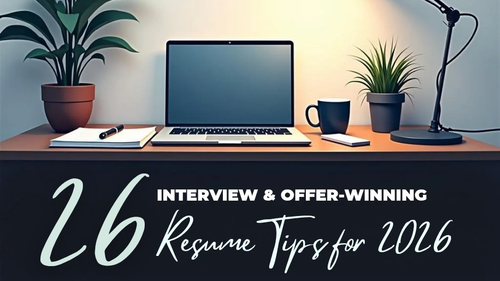
26 Interview and Offer-winning Resume Tips for 2026 and Beyond
Upgrade your resume for 2026 with tips that work from design to keywords and strategies that get interviews. Discover what to fix now and stand out fast!
-

The Harsh Truths About Executive Resumes: What Not to Do
Avoid the most common executive resume mistakes that cost you interviews. Discover actionable resume tips to stand out and land C-level roles.
-

Resume Skills That Get You Hired: What To Include (And What To Skip!)
Discover the top resume skills employers want to see on your resume in 2025. Read or watch to learn how to showcase them to stand out and land more interviews.
-
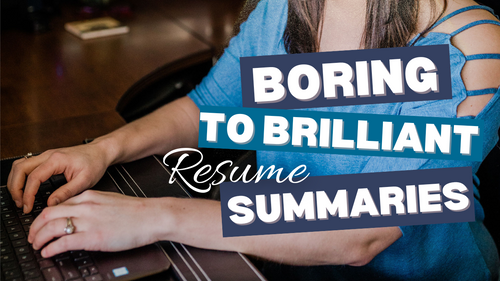
How To Transform Your Resume Summary From Boring To Brilliant
Transform your resume summary from generic to job-winning! Learn how to write a standout branding statement that grabs attention and lands interviews.
-

The Best Resume Tips for Recent Law School Graduates
Guest contributor Luke Bell shares practical resume tips to help recent law school graduates make a lasting impression on potential employers.
-

What Employers Look For In A Resume Skills Section
Learn which key components of an effective Skills section can indicate to resume screening software and the recruiters behind it which skills are your most recent, relevant, functional job-related skills.
-
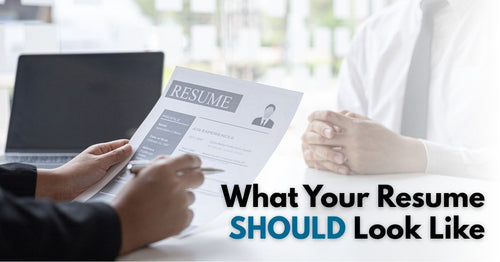
What Your Resume Should Look Like in 2026
This comprehensive resume guide shares what the most common resume sections are and what your resume should look like in 2026.
-
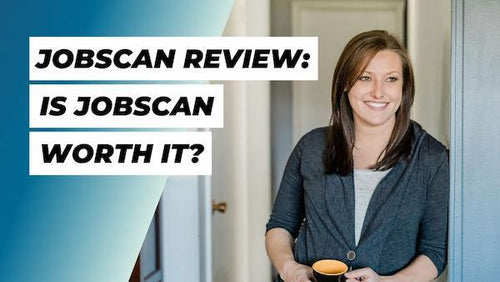
Is Jobscan Worth It? Jobscan Review (2024 Update)
Have you heard of Jobscan? Learn more about this keyword analysis tool for job seekers, what it costs, and what Certified Resume Writers both love and hate about it in this in-depth product review.
-

How To Showcase Transferable Skills And Your Value For A Career Transition
Recognizing the significance of transferable skills is key to successfully showcasing one's potential in the face of change.
-

How To Showcase Achievements In Your Cover Letter
Learn how to turn your accomplishments into a compelling personal narrative that showcases the results an employer can expect from you.
-
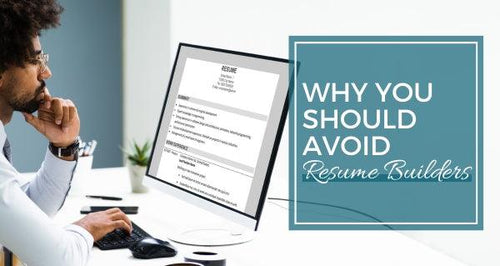
Why You Should Avoid Resume Builders
Online resume builders are an enticing resume resource, but as a Certified Resume Writer who has tried them out, I recommend avoiding them.
-

ChatGPT Review: Resume Writing Edition
How useful is ChatGPT in crafting a resume that lands interviews and job offers? This review by a Certified Resume Writer isn’t what you’d expect.
